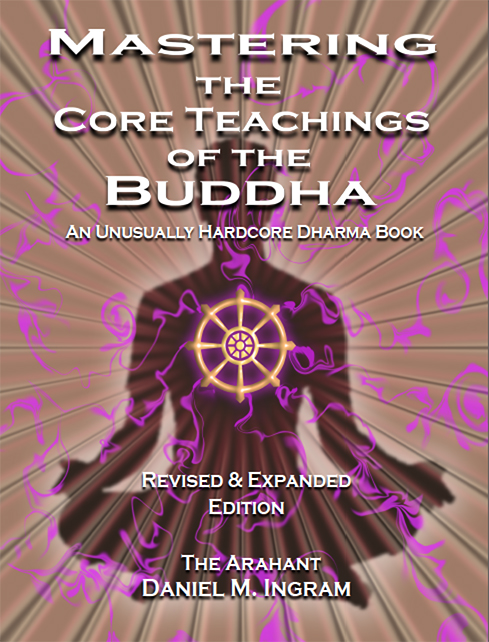68. Magick and the Brahma Viharas
← 67. Benefits of the Powers | Formal Definitions →
Despite talking more about the powers in MCTB1 than most meditation manuals do, I have still been accused of saying little that was practical or useful about them. This following section had a two-year gestation period, during which I felt like I was pregnant and having premature contractions, like it was kicking around in my mind, and I would try to write something and yet nothing would come. Then, one day, after two years of this working itself out in the back of my being, I suddenly had to write it down, and it came out as fast as I could type it, which took about two hours. I had no idea where it was leading until I got done typing it. Thus, I offer this baby to you. I leave it nearly in its original form, with its odd, outlined format in places, as it seems to have its own inner coherence. May it do something useful for your practice.
I myself was surprised where the analysis led, which is to the brahma viharas (“divine abodes, abidings, states, or dwellings”), something that was woefully underdeveloped in MCTB1. My treatment of the brahma viharas is still underdeveloped and worthy of much more study, commentary, and specific advice, but this is a good start, and if you supplement it with readings from other reference sources, you should do just fine. If this more formal discourse on magick totally bores you (which I would personally find mind-boggling, but I admit that muggles—I mean, people—have peculiar tastes), then skip to the section below on how to cultivate the brahma viharas of loving-kindness, compassion, appreciative joy, and equanimity.
Whatever language we use to describe the magickal potentials that exist within people in the wide web of causality, we will run into problems when dealing with anyone who is not well-versed in the terminology, not broad-minded, or who is inexperienced in these domains. For example, if you call magick by the name “science”, you may alienate both those who have a religious aversion to science as well as scientists who would not lump unusual effects into science. If you call it magick, then you alienate the scientist types or merely the concrete and conventional. At some point, you will see a breakdown in communication with almost everyone, but those with real knowledge and understanding will not have a hard time getting back on track. The trick is to work with people where they are.

